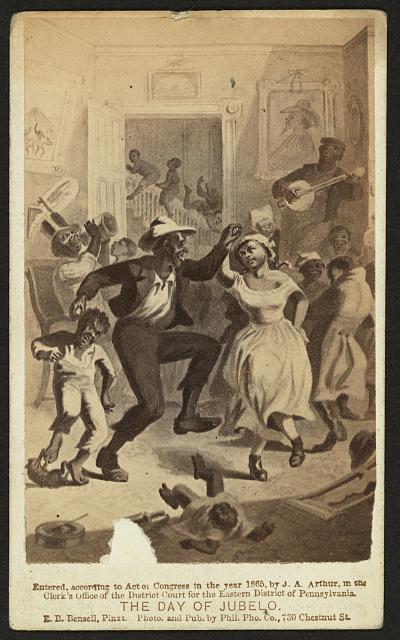I remember the first time I learned about Juneteenth. It was June 1995, and I had just graduated high school. I was playing basketball at a local park with friends and noticed a BBQ next to us playing music, singing, dancing, eating, and celebrating and, in that moment, I thought it was just another party—totally common for the park, especially at that time of the year. About midway through the game, I noticed a few of the participants had stopped to watch our game, and as I ran down the court I could hear them saying “Happy Jubilee!” and “Happy Juneteenth!”
After the game, I took the opportunity to ask one person what was going on and he explained to me that Juneteenth is a celebration of the end of slavery in America. It recognizes the day—June 19, 1865—when U.S. Union General Granger and federal soldiers arrived in Galveston, TX, to announce the end of the Civil War, take control of the state, and ensure all enslaved persons were freed. While the Emancipation Proclamation had been signed two-and-a-half years prior, it applied only to the 11 Confederate states, and slavery had continued unabated in Texas. Six months after Granger’s arrival, the 13th Amendment was finally ratified.
The moment I heard the words Emancipation Proclamation, I couldn’t understand how I had formal education on this topic but yet had no sense of this pivotal moment in American history. Here I was, thinking I understood American history, Black history and was even showing my commitment to both in soon attending a HBCU.

I remember it vividly as a growing moment. It was one of the first times I truly realized, at a personal level, what it meant to be Black in this country. This moment stands out to me because it symbolizes two key things for me: education and allyship.
Juneteenth is not just a holiday. It is American history. And because it’s American history, we should do a better job of both educating our own citizens early, and recognizing our collective history. I owed it to myself to learn more and be better educated. We all do.
Juneteenth is, in a way, also about allyship. While technically, these 250,000 slaves had been freed two years prior, they were not living free. It took an ally in Granger, and his troops, to truly ensure actual freedom. That allyship of 156 years ago is a powerful lesson for us all, even today. This journey we are on is one we have to be on together, and this moment illustrates what can be accomplished with the support of strong allies.
Late last year, we at Team Rubicon, made a commitment to make Juneteenth a holiday, close our office, give staff time to reflect on our American history, consider ways to further allyship, and take time to serve the communities they are passionate about. This journey of equity, inclusion, and belonging is more than recognizing a holiday and a population that has been underrepresented over hundreds of years. The overdue recognition of this holiday is one small step in continuing to educate and invest in staff. It is one more step in reaffirming our commitment to being allies to the underrepresented communities we serve and recognizing the long, hard journey behind us and the continued progress that lies ahead. It is one more step in ensuring people belong.
This now-federal holiday and its recognition not only symbolize freedom but also represent the resilience of a population who continues to endure today. This journey and struggle is far from over, and America remains at odds with racial justice and equity. Yet by taking the time to celebrate a day that marks the end of slavery, we begin moving the needle further toward equity, inclusion, and allyship.



